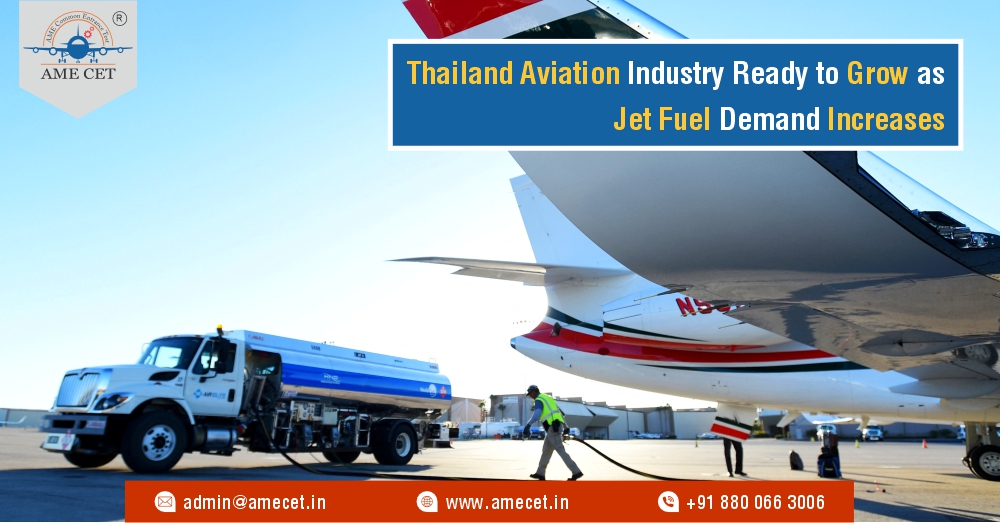
As the world moves into a post-pandemic era, Thailand's aviation industry is preparing for a significant upswing, fueled by an increase in jet fuel demand. With travel resuming and international borders reopening, the nation is witnessing a revitalization in air travel that bodes well for its economic future.
Reopening of Borders
The reopening of borders has been a major catalyst for growth. After extensive travel restrictions during the COVID-19 pandemic, countries are easing entry requirements, allowing tourists to return to Thailand. Known for its beautiful beaches, rich culture, and vibrant cities, Thailand remains a top destination for travelers. Government initiatives like the "Test and Go" program have successfully encouraged tourism and instilled confidence in potential visitors.
Rise in Domestic Travel
In addition to welcoming international tourists, there has been a marked increase in domestic travel. Many Thais are eager to explore their own country, leading to a spike in bookings for flights to popular destinations such as Chiang Mai, Phuket, and Krabi. airlines are responding by expanding their domestic routes, further driving demand for jet fuel.
Fleet Expansion and Infrastructure Upgrades
To meet the rising passenger numbers, airlines are investing in fleet expansion. Major carriers are adding new aircraft and upgrading existing ones to improve efficiency and comfort. airports are also undergoing significant renovations and expansions to handle the anticipated influx of travelers, which is crucial for supporting the aviation sector’s growth.
Navigating Rising Fuel Prices
While the demand for jet fuel is climbing, airlines face the challenge of rising fuel prices. Volatile global oil markets have led to increased operational costs. Nevertheless, the strong demand for air travel compels airlines to find strategies to manage these costs, including optimizing flight routes and exploring sustainable fuel options.
Commitment to Sustainability
Sustainability is becoming increasingly important in the aviation industry. As environmental concerns grow, airlines in Thailand are looking to reduce their carbon footprint. This includes investing in more fuel-efficient aircraft and exploring sustainable aviation fuels (SAFs). The Thai government supports these initiatives, aligning them with broader national goals for environmental sustainability.
Government Support and Investment
Recognizing the aviation sector's vital role in the economy, the Thai government is actively supporting the industry through various initiatives. Plans to upgrade airport facilities, improve air traffic management, and enhance safety protocols are underway. These investments are essential not only for the aviation sector but also for creating jobs and stimulating economic growth in tourism and related industries.
Strengthening International Partnerships
Thailand's strategic location in Southeast Asia positions it as an ideal hub for international travel. The country is working to strengthen partnerships with neighboring nations to enhance connectivity and promote regional tourism. Collaborations with airlines and tourism boards in Malaysia, Singapore, and Indonesia aim to create seamless travel experiences, increasing passenger traffic and jet fuel demand.
Focus on Safety and Health
As travel resumes, safety and health protocols are top priorities for airlines and airports. Passengers are more concerned than ever about hygiene and safety measures. Airlines are implementing strict health protocols, including enhanced cleaning, advanced air filtration systems, and contactless services, which help instill confidence in travelers.
Conclusion
Thailand's aviation sector stands on the brink of a significant transformation as it adapts to rising jet fuel demand and the renewed interest in air travel. With the reopening of borders, increased domestic travel, and substantial investments in infrastructure, the industry is well-positioned for growth. While challenges such as rising fuel prices and environmental sustainability persist, the collective commitment of the government and airlines to address these issues provides a hopeful outlook. As Thailand solidifies its status as a key travel hub in Southeast Asia, the aviation sector will undoubtedly play a crucial role in the nation’s economic recovery and future development
Category
-
Aircraft Maintenance Engineering (DGCA) (62)
-
(268)
-
Cabin Crew (1)
-
Aerospace Engineering (3)
-
Aeronautical Engineering (2)
-
Airport Management (5)
-
Aircraft Maintenance Engineering (EASA) (6)
-
Airport Ground Staff (1)
-
Commercial Pilot License(CPL) (51)
-
Aircraft Maintenance Engineering (BTech/BE) (1)
-
B.Sc. in Aviation (1)
-
AME CET (5)
